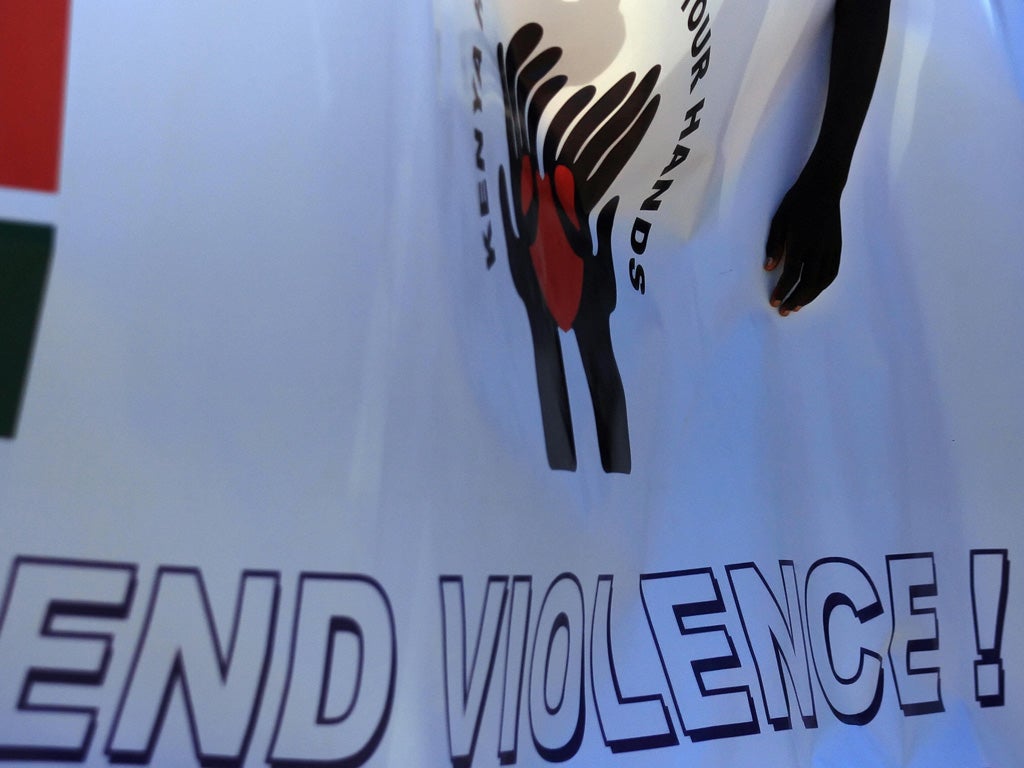FGM in Ghana: What local African organisations are doing to eliminate female genital mutilation
Despite raising awareness on FGM, the practice persists amongst die-hard traditionalists who justify the practice on the grounds of ancestral beliefs and rites

Your support helps us to tell the story
From reproductive rights to climate change to Big Tech, The Independent is on the ground when the story is developing. Whether it's investigating the financials of Elon Musk's pro-Trump PAC or producing our latest documentary, 'The A Word', which shines a light on the American women fighting for reproductive rights, we know how important it is to parse out the facts from the messaging.
At such a critical moment in US history, we need reporters on the ground. Your donation allows us to keep sending journalists to speak to both sides of the story.
The Independent is trusted by Americans across the entire political spectrum. And unlike many other quality news outlets, we choose not to lock Americans out of our reporting and analysis with paywalls. We believe quality journalism should be available to everyone, paid for by those who can afford it.
Your support makes all the difference.The Ghanaian Association for Women’s Welfare (GAWW) welcomes the announcement by the DFID that up to £35 million will be provided to assist with efforts to eliminate female genital mutilation (FGM) in the African region and in developing countries.
However, we are somewhat concerned that in an attempt to avoid treading on the sensibilities of die-hard traditionalists and social and religious conservatives who are the main gate keepers of FGM, DFID might sidestep the channelling of funds to African organisations who advocate for more a comprehensive approach, involving legislative, protective and educational measures against the practice. In our experience, the best way to accelerate the elimination of FGM is to ensure that a synergy of measures is implemented. This involves a combination of community education, protection measures for girls at risk of FGM and justice outcomes – not to mention addressing cross-border issues.
The GAWW was established in 1984 and collaborates with some UN agencies, the Ghana Ministry of Women and Children, international donors, other civil society organisations and research organisations that operate in the regions affected by FGM. We are a national division of the Inter African Committee (IAC) on Harmful Traditional Practices – a regional umbrella body with divisions in 28 African countries.
The IAC was set up to advocate for the elimination of all traditional practices that are harmful to the health of women and children, especially female genital mutilation (FGM). Since its formation, the GAWW has spearheaded the fight to end FGM in Ghana. We were the first civil society organisation to bring the harmful effects of FGM on women and children to the attention of the general Ghana public, at a time when the issue was taboo.
Working on a shoe-string budget, we have worked extensively in the Upper East, Upper West, Northern and Brong Ahafo regions, which are the areas with the highest prevalence of FGM and have been successful in co-opting many traditional chiefs to support the campaign to end the practice. We were involved in pioneering the enactment of a law banning FGM in 1994 and its subsequent amendment in 2007. Our work has included research, promoting the implementation and influencing change in legislation on FGM, organising public advocacy events and campaigns, educative and literacy programmes and finding ways of assisting “circumcisers” to exchange their knives for other forms of viable employment.
Despite the gains made in mobilising communities and raising awareness on FGM, the practice persists amongst die-hard traditionalists who justify the practice on the grounds of ancestral beliefs and rites. According to the 2006 UNICEF Multiple Indicator Cluster Surveys (MICS), the national prevalence of FGM is estimated to be 3.8% among women aged 15-49. However, this aggregate data may conceal the continued high prevalence of FGM in some of the specific areas where it is practised.
For example, in the Bawku municipality recent research suggests that 51% of people in the region support the practice and that 50 per cent of girls under the age of 15 have been subjected to FGM.
There had been many instances too when cases of FGM have been reported to the police and the culprits were left to go free without being charged. A case that readily comes to mind occurred in 2008 when a 14 year old pupil in Walewale was taken away by her father under the pretence of attending her grandfather’s funeral. Instead, she was taken to a secluded community where she and twelve other girls had their genitals mutilated in an FGM rite.
On return to Walewale, she reported her ordeal to a teacher who is GAWW’s focal person in the district. We followed up the case and tracked down her father to Goaso in the Brong Ahafo Region. However, no government intervention took place. This is a typical example of the lack of commitment of law enforcement agencies. If cases likes this were given the seriousness they deserve, a lot more could be achieved in the fight to eliminate FGM in Ghana. We need our government’s full commitment and engagement with FGM prevention measures, working in partnership with civil society organisations instead of placing the burden of FGM prevention solely at their feet.
In addition, we recommend that the DFID support local and regional civil society organisations which already work tireless across Africa to eliminate FGM on the ground. This investment will prove to more effective and sustainable in the long run – particularly after external donors leave and development programmes are completed. Half-baked external solutions, whose simplistic narratives may satisfy donors and a Western audience, often obscure the real issues and the challenges we face on the ground on a daily basis.
Join our commenting forum
Join thought-provoking conversations, follow other Independent readers and see their replies
Comments